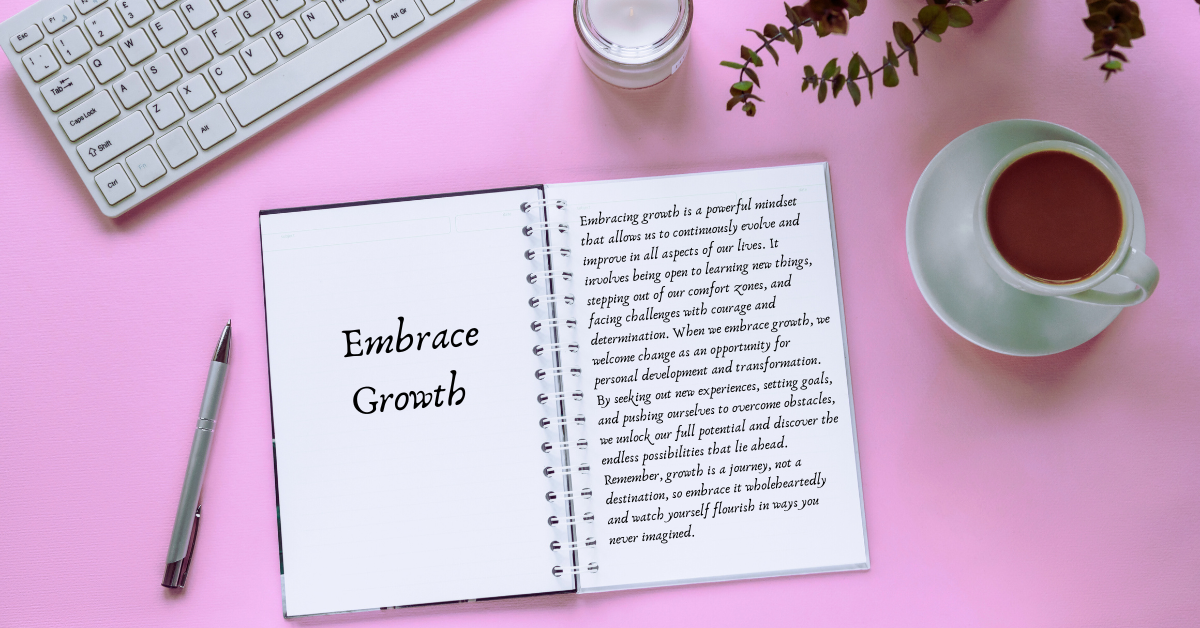In a world where self-improvement is a constant pursuit, self-help books stand out as powerful tools for personal growth and development. The genre’s popularity underscores a universal desire for empowerment and transformation. From unlocking untapped potential to overcoming life’s challenges, self-help books offer invaluable insights and actionable strategies for those seeking to elevate their lives. In this article, we delve into the realm of self-help literature, exploring the profound impact of these books and highlighting top reads that can inspire and guide individuals on their journey toward personal growth. Join us as we uncover the transformative power of self-help books and discover the key to unlocking your full potential.
Book Recommendations
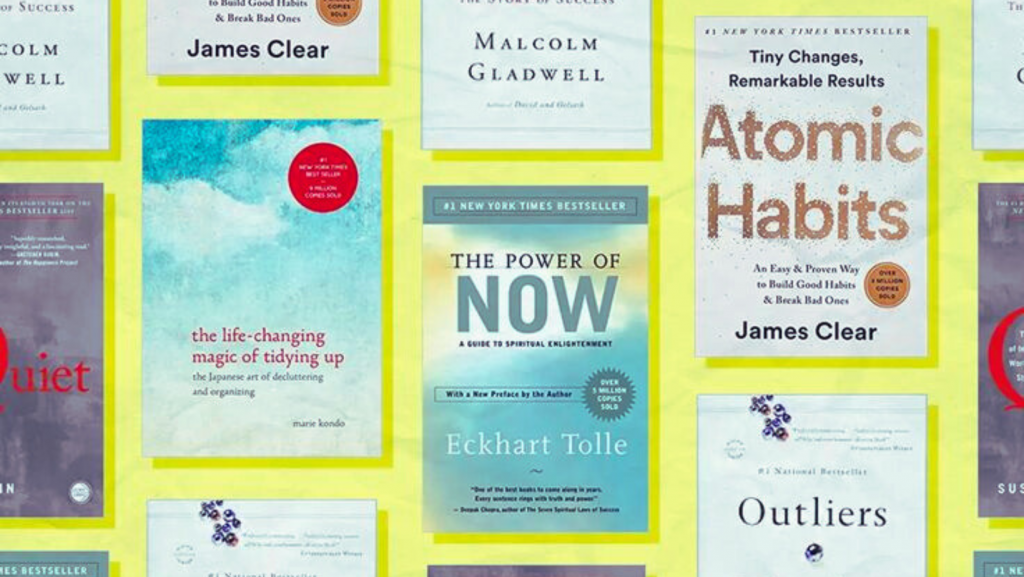
When it comes to self-help, books have long been a cornerstone of personal growth and development. They offer valuable insights, practical advice, and inspiration to help individuals navigate life’s challenges and achieve their goals. Here are some recommended books in the self-help genre that can empower and motivate you on your journey:
- The Power of Now by Eckhart Tolle: This timeless classic emphasizes the importance of living in the present moment and letting go of past regrets and future anxieties. Tolle’s teachings encourage mindfulness and inner peace, making it a must-read for anyone seeking to cultivate a deeper sense of awareness and fulfillment.
- Atomic Habits by James Clear: In this insightful book, Clear explores the science of habit formation and offers practical strategies for building and sustaining positive habits. By understanding the psychology behind habits, readers can learn how to make small changes that lead to big results in their personal and professional lives.
- The Subtle Art of Not Giving a Fck* by Mark Manson: With a refreshing dose of humor and honesty, Manson challenges conventional self-help wisdom and encourages readers to embrace life’s inevitable struggles. Through candid storytelling and practical advice, this book teaches valuable lessons about resilience, acceptance, and finding meaning in adversity.
- Daring Greatly by Brené Brown: Brené Brown’s groundbreaking work on vulnerability and shame has resonated with millions of readers around the world. In Daring Greatly, she explores the power of vulnerability as a pathway to courage, connection, and wholehearted living. This book offers transformative insights for anyone looking to cultivate authenticity and embrace their imperfections.
- Mindset: The New Psychology of Success by Carol S. Dweck: In Mindset, Dweck introduces the concept of fixed versus growth mindsets and explores how our beliefs about intelligence and talent can shape our success and happiness. By adopting a growth mindset, readers can learn to embrace challenges, persevere through setbacks, and unlock their full potential.
Online Courses
In today’s digital age, online courses have become increasingly popular for individuals seeking to enhance their personal development journey. With the convenience of learning from anywhere and at any time, these courses offer a flexible and accessible way to acquire new knowledge and skills. Here are some recommended online courses in the self-help realm that can empower you to achieve your goals:
- The Science of Well-Being by Yale University (Coursera): This highly acclaimed course, taught by Professor Laurie Santos, delves into the science of happiness and provides practical strategies for improving well-being. Through engaging lectures and interactive exercises, participants learn evidence-based practices for cultivating happiness and leading a more fulfilling life.
- Achieving Personal and Professional Success by Wharton School of the University of Pennsylvania (Coursera): Led by Professor G. Richard Shell, this course explores the principles of success and offers actionable techniques for setting and achieving goals. Participants learn how to leverage their strengths, overcome obstacles, and create a roadmap for personal and professional growth.
- The Happiness Program by Art of Living: This comprehensive online program combines ancient wisdom with modern science to help individuals find inner peace and happiness. Through a series of guided meditations, breathing exercises, and mindfulness practices, participants learn practical tools for managing stress, enhancing resilience, and cultivating a positive mindset.
- Time Management Fundamentals by Dave Crenshaw (LinkedIn Learning): In this practical course, time management expert Dave Crenshaw teaches essential techniques for maximizing productivity and achieving work-life balance. Participants learn how to prioritize tasks, overcome procrastination, and create effective routines to make the most of their time.
- Mindfulness-Based Stress Reduction (MBSR) by Jon Kabat-Zinn (Sounds True): This renowned course, based on the principles of mindfulness meditation, offers a holistic approach to stress reduction and self-care. Participants learn how to cultivate mindfulness in everyday life, manage stressors more effectively, and develop greater resilience in the face of challenges.
Mobile Apps
In today’s fast-paced world, mobile apps have revolutionized the way we access self-help resources and support. With just a few taps on our smartphones, we can access a wealth of tools and techniques designed to enhance our well-being and personal growth. Here are some recommended mobile apps in the self-help category that can empower you to take control of your life:
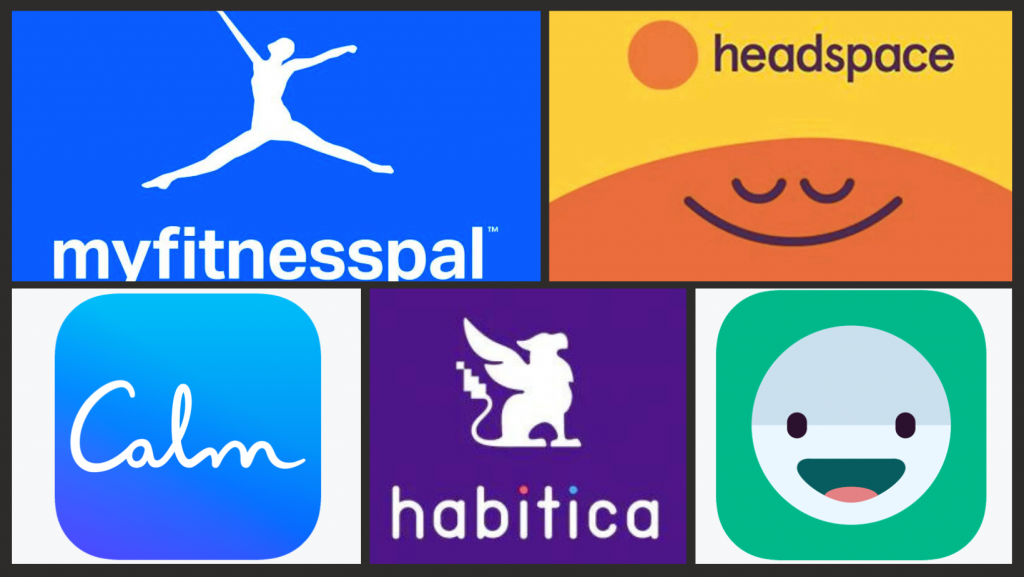
- Headspace: Headspace is a popular meditation and mindfulness app that offers guided meditation sessions, breathing exercises, and mindfulness practices to help users reduce stress, improve focus, and cultivate a sense of calm. With a user-friendly interface and a variety of meditation themes, Headspace makes it easy for beginners and experienced meditators alike to incorporate mindfulness into their daily routine.
- Calm: Calm is another top-rated meditation and relaxation app that provides a wide range of guided meditations, sleep stories, breathing exercises, and soothing music tracks to promote relaxation and sleep. With features like the Daily Calm meditation and Sleep Stories narrated by celebrities, Calm offers a personalized and immersive experience for users looking to improve their mental well-being.
- MyFitnessPal: MyFitnessPal is a comprehensive fitness and nutrition app that helps users track their food intake, exercise habits, and overall health goals. With a vast database of food items and a barcode scanner feature, MyFitnessPal makes it easy for users to monitor their calorie intake, track macronutrients, and make informed dietary choices to support their health and fitness journey.
- Habitica: Habitica is a unique productivity app that gamifies task management and habit formation to help users stay motivated and accountable. By turning daily tasks and habits into a role-playing game, Habitica encourages users to complete tasks, develop positive habits, and level up their virtual character. With features like customizable avatars and in-app rewards, Habitica makes productivity fun and engaging for users of all ages.
- Daylio: Daylio is a mood and journaling app that allows users to track their mood and activities throughout the day. With customizable mood tags and activity categories, Daylio enables users to gain insights into their emotional well-being, identify patterns, and make positive changes to their daily routines. With features like mood statistics and mood tracking reminders, Daylio helps users cultivate self-awareness and improve their mental health.
Podcasts
Podcasts have emerged as a powerful medium for self-help and personal development, offering listeners a convenient way to access valuable insights, expert advice, and motivational stories on-the-go. With a wide range of topics and formats, podcasts cater to diverse interests and learning styles, making them an accessible and engaging resource for individuals seeking inspiration and growth. Here are some recommended podcasts in the self-help genre that can inspire and empower you:
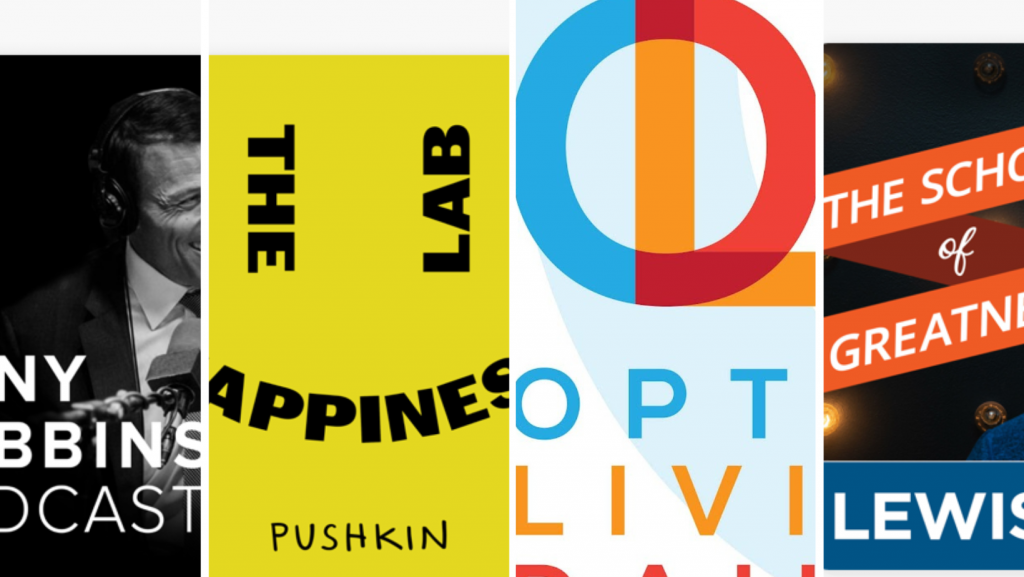
- The Tim Ferriss Show: Hosted by bestselling author and entrepreneur Tim Ferriss, this podcast features interviews with world-class performers from various fields, including business, sports, entertainment, and more. Ferriss deconstructs their routines, habits, and strategies for success, offering actionable advice and life lessons that listeners can apply to their own lives.
- The School of Greatness with Lewis Howes: In this podcast, former professional athlete turned lifestyle entrepreneur Lewis Howes interviews inspiring individuals who have achieved greatness in their respective fields. From entrepreneurs and athletes to authors and thought leaders, guests share their stories, insights, and practical tips for personal and professional growth.
- The Tony Robbins Podcast: Hosted by renowned life coach and motivational speaker Tony Robbins, this podcast features interviews with experts and thought leaders in the areas of business, finance, health, and personal development. Robbins explores topics such as mindset, leadership, and peak performance, offering strategies and tools to help listeners unleash their full potential.
- The Happiness Lab with Dr. Laurie Santos: In this podcast, cognitive scientist and Yale University professor Dr. Laurie Santos explores the science of happiness and well-being. Through engaging storytelling and expert interviews, Santos shares evidence-based strategies for cultivating happiness, resilience, and fulfillment in everyday life.
- Optimal Living Daily: Hosted by Justin Malik, this podcast curates and narrates the best self-help and personal development content from blogs and books. Each episode features a short, digestible reading on topics such as productivity, mindfulness, and self-improvement, making it ideal for listeners looking for daily doses of inspiration and motivation.
- Billy Carson-4biddenKnowledge: Discover the fascinating world of Billy Carson in this must-listen episode of his podcast. Renowned for his expertise on ancient wisdom and modern success strategies, Carson offers invaluable insights into applying timeless knowledge to everyday life. This conversation isn’t just an interview; it’s a journey through hidden truths that reveal the power of cosmic awareness and personal manifestation. Whether you’re a long-time admirer of Carson or newly curious about his teachings, this episode will captivate your mind and inspire your spirit. Dive into this exploration of ancient secrets and their profound impact on health, wealth, and personal growth. Don’t miss out—tune in to uncover the transformative lessons Billy Carson has to share.”
Personal Development Seminars
Personal development seminars offer immersive experiences designed to inspire, educate, and empower individuals on their journey of self-discovery and growth. Whether held in-person or virtually, these seminars provide opportunities for attendees to learn from experts, connect with like-minded individuals, and gain valuable insights and skills to improve their lives. Here are some key points to consider about personal development seminars:
- In-Person vs. Virtual Seminars: Personal development seminars can be conducted in-person at conference centers, hotels, or retreats, or they can take place virtually through online platforms. In-person seminars offer the opportunity for face-to-face interaction with speakers and fellow attendees, fostering a sense of community and engagement. Virtual seminars, on the other hand, provide flexibility and accessibility for participants to join from anywhere in the world, often at a lower cost.
- Topics Covered: Personal development seminars cover a wide range of topics aimed at enhancing various aspects of life, including career, relationships, health, and mindset. Common seminar themes include leadership development, communication skills, goal setting, mindfulness, and emotional intelligence. Attendees can choose seminars based on their specific interests and areas of focus.
- Expert Speakers: Seminars feature expert speakers who are knowledgeable and experienced in their respective fields of personal development. These speakers may include bestselling authors, renowned psychologists, successful entrepreneurs, and motivational speakers. Their expertise and insights serve to inspire and motivate attendees to take action towards positive change in their lives.
- Interactive Workshops and Activities: Seminars often incorporate interactive workshops, group discussions, and experiential activities to facilitate learning and personal growth. Attendees have the opportunity to participate in exercises and exercises designed to deepen their understanding of seminar topics and apply concepts to their own lives.
- Networking Opportunities: Personal development seminars provide valuable networking opportunities for attendees to connect with peers who share similar interests and goals. Networking sessions, breakout groups, and social events allow participants to exchange ideas, build relationships, and support each other on their personal development journey.
Therapeutic Techniques
Therapeutic techniques are tools and approaches used by mental health professionals to help individuals address and manage psychological issues, improve coping skills, and promote overall well-being. These techniques are grounded in evidence-based practices and tailored to meet the unique needs of each individual. Here are some commonly used therapeutic techniques:
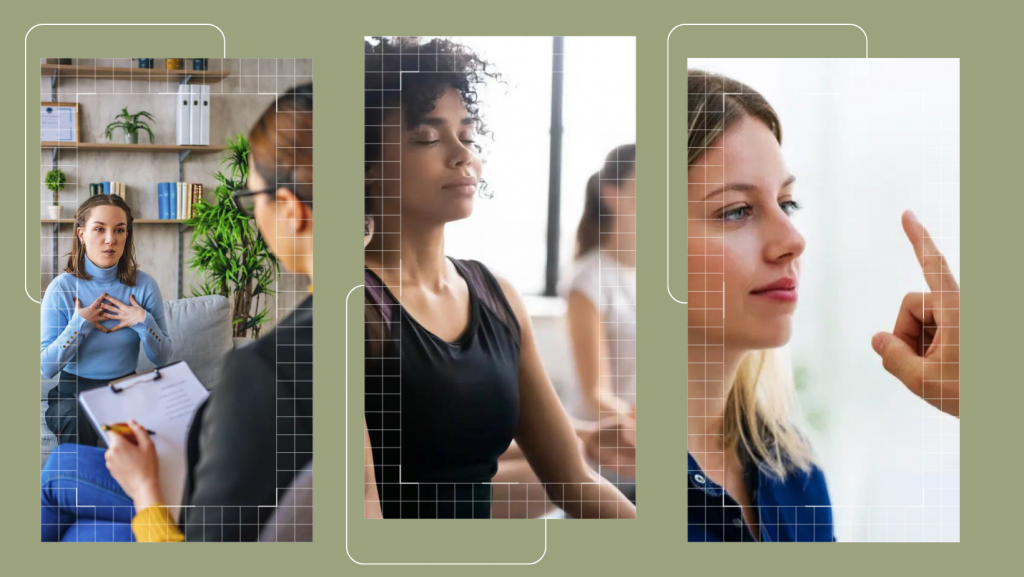
- Cognitive-Behavioral Therapy (CBT): CBT is a widely used therapeutic approach that focuses on identifying and changing negative thought patterns and behaviors. It helps individuals recognize and challenge irrational beliefs, develop healthier coping strategies, and learn practical skills to manage symptoms of anxiety, depression, and other mental health conditions.
- Mindfulness-Based Stress Reduction (MBSR): MBSR is a mindfulness-based intervention that combines mindfulness meditation, yoga, and body awareness techniques to reduce stress and enhance well-being. It teaches individuals to cultivate present-moment awareness, non-judgmental acceptance, and self-compassion, leading to greater resilience and emotional balance.
- Dialectical Behavior Therapy (DBT): DBT is a type of cognitive-behavioral therapy that focuses on teaching skills to manage intense emotions, improve interpersonal relationships, and tolerate distress. It incorporates techniques such as mindfulness, emotion regulation, interpersonal effectiveness, and distress tolerance to help individuals build a life worth living.
- Eye Movement Desensitization and Reprocessing (EMDR): EMDR is a psychotherapy approach used to treat trauma and PTSD. It involves bilateral stimulation of the brain through eye movements, taps, or sounds while recalling distressing memories. This process helps individuals process traumatic experiences, reduce emotional distress, and reprocess negative beliefs associated with the trauma.
- Acceptance and Commitment Therapy (ACT): ACT is a mindfulness-based behavioral therapy that focuses on increasing psychological flexibility and promoting values-based action. It encourages individuals to accept their thoughts and feelings without judgment, clarify their values, and take committed action towards their goals, even in the presence of discomfort or uncertainty.
Mindfulness and Meditation
Mindfulness and meditation are powerful practices that promote mental clarity, emotional well-being, and overall peace of mind. Rooted in ancient traditions, these practices have gained widespread popularity in modern times for their ability to reduce stress, enhance focus, and cultivate a greater sense of self-awareness. Here’s what you need to know about mindfulness and meditation:

- What is Mindfulness?: Mindfulness is the practice of paying attention to the present moment with openness, curiosity, and acceptance. It involves deliberately directing your awareness to the sensations, thoughts, and emotions arising in the present moment without judgment. By cultivating mindfulness, individuals can become more aware of their thoughts and reactions, leading to greater emotional regulation and stress reduction.
- Benefits of Mindfulness: Research has shown that practicing mindfulness regularly can have numerous benefits for mental and physical health. These benefits include reduced stress and anxiety, improved focus and concentration, enhanced emotional resilience, better sleep quality, and increased overall well-being. Mindfulness has also been linked to improvements in relationships, work performance, and overall quality of life.
- Types of Meditation: Meditation is a broad term that encompasses a variety of practices aimed at quieting the mind and cultivating inner peace. Some common types of meditation include:
- Mindfulness Meditation: In mindfulness meditation, practitioners focus their attention on the present moment, often by paying attention to the breath or bodily sensations. The goal is to cultivate non-judgmental awareness of thoughts, feelings, and sensations as they arise.
- Loving-Kindness Meditation: Loving-kindness meditation involves cultivating feelings of compassion and goodwill towards oneself and others. Practitioners repeat phrases or visualizations that evoke feelings of love, kindness, and acceptance towards themselves and others.
- Transcendental Meditation (TM): TM is a specific form of mantra meditation that involves silently repeating a mantra to quiet the mind and access a state of deep relaxation and inner peace.
- How to Practice Mindfulness and Meditation: Mindfulness and meditation can be practiced in various ways, including seated meditation, walking meditation, body scan meditation, and mindful movement practices like yoga or tai chi. Beginners can start with short, guided meditation sessions and gradually increase the duration and frequency as they become more comfortable with the practice.
Productivity Tools
Productivity tools are software applications and resources designed to help individuals manage their time, tasks, and projects more effectively. From task management and organization to time tracking and collaboration, these tools offer a range of features to streamline workflows and boost productivity. Here are some popular productivity tools that can help you stay organized and focused:
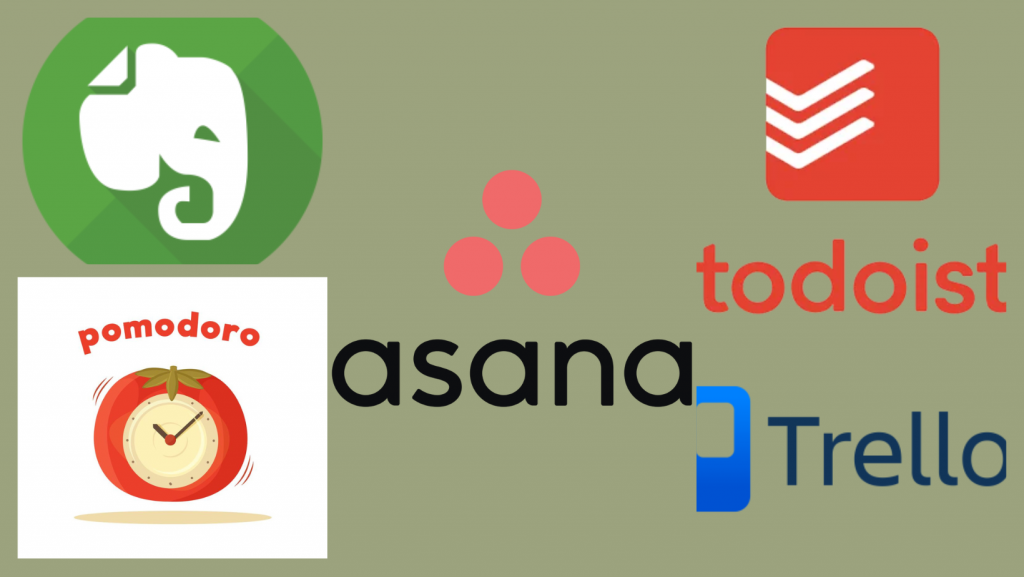
- Todoist: Todoist is a versatile task management app that allows users to create to-do lists, set deadlines, and prioritize tasks. With features like recurring tasks, sub-tasks, and labels, Todoist helps users organize their tasks and stay on top of their responsibilities. It also syncs across devices, making it easy to access your tasks from anywhere.
- Trello: Trello is a visual collaboration tool that uses boards, lists, and cards to organize tasks and projects. Users can create boards for different projects, add tasks as cards, and move them through customizable lists (e.g., To Do, In Progress, Done). Trello also supports file attachments, comments, and due dates, making it ideal for team collaboration.
- Asana: Asana is a project management tool that helps teams organize and track their work. Users can create projects, tasks, and subtasks, assign them to team members, and set deadlines. With features like task dependencies, timelines, and progress tracking, Asana helps teams stay aligned and focused on their goals.
- Pomodoro Timer: The Pomodoro Technique is a time management method that breaks work into intervals (typically 25 minutes) separated by short breaks. Pomodoro timer apps like Focus Booster or TomatoTimer help users implement this technique by tracking work sessions and break times. By working in short bursts with regular breaks, users can maintain focus and productivity throughout the day.
- Evernote: Evernote is a note-taking app that allows users to capture ideas, organize notes, and collaborate with others. Users can create text, audio, or image-based notes, organize them into notebooks and tags, and sync them across devices. Evernote also supports features like reminders, checklists, and web clipping, making it a versatile tool for personal and professional use.
Inspirational Stories
Inspirational stories have the power to uplift, motivate, and instill hope in individuals facing challenges or seeking inspiration in their lives. These stories showcase the resilience, courage, and determination of individuals who have overcome adversity and achieved remarkable feats. Here are a few inspirational stories that demonstrate the power of the human spirit:

- Nick Vujicic: Born without arms and legs, Nick Vujicic has become a renowned motivational speaker and author, inspiring millions with his message of hope and resilience. Despite facing significant physical challenges, Nick has overcome adversity to lead a fulfilling life, traveling the world to share his story and empower others to embrace their differences and live with purpose.
- Malala Yousafzai: Malala Yousafzai is a Pakistani activist for female education and the youngest Nobel Prize laureate. After surviving an assassination attempt by the Taliban at the age of 15, Malala continued to advocate for girls’ education and became a global symbol of courage and resilience. Her unwavering commitment to education and women’s rights has inspired millions around the world to stand up for what they believe in and fight for change.
- J.K. Rowling: Before becoming one of the best-selling authors of all time with the Harry Potter series, J.K. Rowling faced numerous rejections and setbacks in her personal and professional life. Struggling as a single mother living on welfare, Rowling persevered through hardship and rejection to bring her magical world to life. Her story of resilience and perseverance serves as a reminder that failure is not the end but a stepping stone to success.
- Walt Disney: Walt Disney, the creator of beloved characters like Mickey Mouse and the founder of Disneyland, faced numerous failures and setbacks on his path to success. From bankruptcy to rejection from film studios, Disney encountered numerous obstacles throughout his career. However, his unwavering belief in his vision and relentless pursuit of his dreams eventually led to the creation of one of the most iconic entertainment brands in history.
Scientific Evidence
Scientific evidence plays a crucial role in validating the effectiveness of self-help practices and techniques. By conducting rigorous research and analysis, scientists and researchers provide valuable insights into the impact of self-help on mental health, well-being, and personal development. Here’s how scientific evidence supports the efficacy of self-help practices:
- Effectiveness of Mindfulness-Based Interventions: Numerous studies have demonstrated the effectiveness of mindfulness-based interventions, such as mindfulness meditation and mindfulness-based stress reduction (MBSR), in reducing stress, anxiety, and depression. Research has shown that regular practice of mindfulness can lead to improvements in mood, attention, and overall psychological well-being.
- Benefits of Cognitive-Behavioral Therapy (CBT): Cognitive-behavioral therapy (CBT) is one of the most widely researched and evidence-based forms of psychotherapy. Studies have consistently shown that CBT is effective in treating a variety of mental health conditions, including depression, anxiety disorders, PTSD, and eating disorders. CBT helps individuals identify and change negative thought patterns and behaviors, leading to lasting improvements in mood and functioning.
- Impact of Positive Psychology Interventions: Positive psychology interventions, which focus on cultivating positive emotions, strengths, and virtues, have been shown to enhance well-being and resilience. Research has found that practices such as gratitude journaling, acts of kindness, and savoring positive experiences can lead to greater happiness, life satisfaction, and overall psychological flourishing.
- Neuroplasticity and Personal Growth: Neuroplasticity, the brain’s ability to reorganize and adapt in response to experiences, plays a key role in personal growth and development. Research has shown that engaging in activities such as learning new skills, practicing mindfulness, and engaging in therapy can promote neuroplasticity and facilitate positive changes in brain structure and function.
- Long-Term Benefits of Self-Help Practices: Longitudinal studies have demonstrated the long-term benefits of self-help practices on mental health and well-being. For example, individuals who engage in regular meditation or mindfulness practices may experience sustained improvements in mood, stress levels, and overall quality of life over time.
Accessibility and Inclusivity
Accessibility and inclusivity are essential considerations in the realm of self-help, ensuring that resources and practices are accessible to individuals of all backgrounds, abilities, and identities. By prioritizing accessibility and inclusivity, self-help initiatives can reach a broader audience and make a positive impact on diverse communities. Here are some key aspects of accessibility and inclusivity in self-help:

- Physical Accessibility: Self-help resources should be physically accessible to individuals with disabilities, ensuring that materials are available in formats that accommodate different needs. This may include providing braille versions of books, closed captioning for videos, or audio descriptions for visual content. By making resources accessible to individuals with disabilities, self-help initiatives can ensure that everyone has the opportunity to benefit from their offerings.
- Cultural Sensitivity: Self-help resources should be culturally sensitive and inclusive, recognizing and respecting the diversity of beliefs, values, and traditions among different communities. This may involve incorporating diverse perspectives and voices into content creation, addressing cultural barriers and biases, and offering resources in multiple languages. By embracing cultural sensitivity, self-help initiatives can foster a sense of belonging and relevance for individuals from various cultural backgrounds.
- Financial Accessibility: Self-help resources should be financially accessible, ensuring that cost is not a barrier to accessing valuable information and support. This may involve offering free or low-cost resources, providing scholarships or discounts for individuals with financial need, or partnering with community organizations to make resources available to underserved populations. By addressing financial barriers, self-help initiatives can ensure that everyone has access to the tools and knowledge they need to thrive.
- Gender and Identity Inclusivity: Self-help resources should be inclusive of individuals of all genders and identities, recognizing and respecting the diverse experiences and perspectives within the community. This may involve using inclusive language and imagery, offering resources that address specific needs and challenges faced by different gender identities, and creating supportive and inclusive environments for all individuals to engage with self-help practices. By prioritizing gender and identity inclusivity, self-help initiatives can create a welcoming and affirming space for everyone to participate and grow.
Conclusion
In conclusion, self-help is a valuable and empowering journey that offers individuals the opportunity to take control of their lives, overcome challenges, and achieve personal growth and fulfillment. From mindfulness meditation to productivity tools, from inspirational stories to expert opinions, self-help encompasses a diverse range of practices and resources aimed at enhancing well-being and promoting positive change.
By exploring various self-help practices and utilizing accessible and inclusive resources, individuals can embark on a journey of self-discovery and personal development that resonates with their unique needs and goals. Whether it’s managing stress, improving relationships, or cultivating mindfulness, there are countless ways to incorporate self-help into daily life and foster greater resilience, happiness, and fulfillment.
It’s important to recognize that self-help is not a one-size-fits-all solution, and what works for one person may not work for another. Therefore, it’s essential to approach self-help with an open mind, a willingness to experiment, and a commitment to self-reflection and growth. By embracing the principles of accessibility and inclusivity, self-help initiatives can ensure that everyone has the opportunity to benefit from the valuable resources and practices available.
Ultimately, the journey of self-help is a deeply personal and transformative experience that requires dedication, perseverance, and a belief in one’s ability to create positive change. As individuals continue on their self-help journey, may they find inspiration, support, and guidance in the diverse array of resources and practices available, and may they discover their own path to happiness, fulfillment, and self-empowerment.


